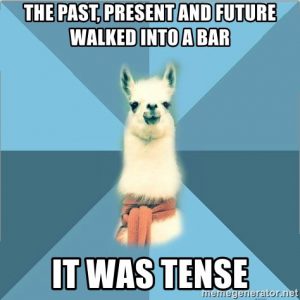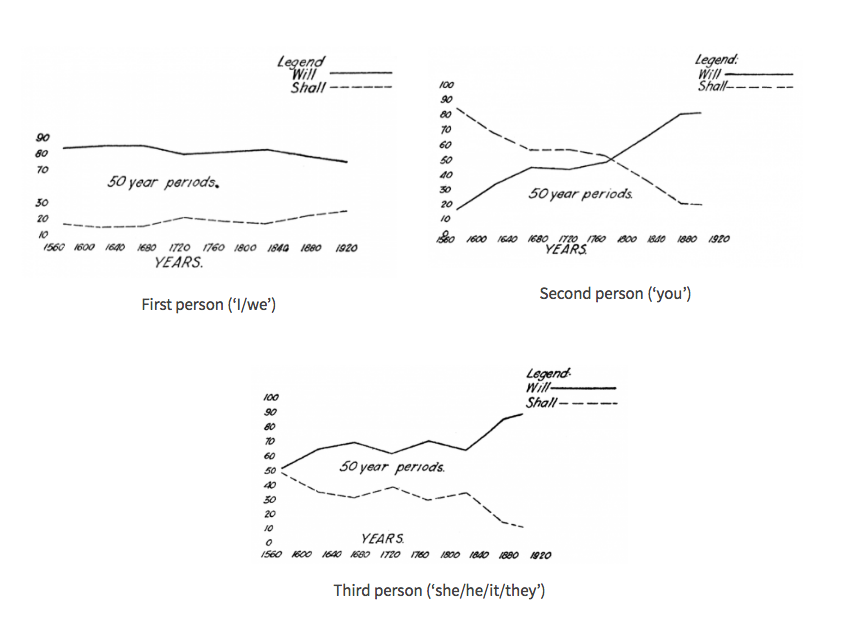Tongue twisters
Today I offer links to three international recipes: from Germany we have Kabeljau mit gebratener Blutwurst, Rosenkohl und Lakritzsauce (‘cod with pan-fried blood sausage, brussels sprouts and licorice sauce’), from France Cabillaud à la nage de réglisse (‘cod in licorice sauce’), and from Spain we have Lomo de bacalao en salsa de regaliz con juliana de judias verdes (‘filet of cod in licorice sauce with julienned green beans’).
We will report later on the Morph cook-off challenge, once we scare up some participants and tasters. In the meanwhile, take note of what all these recipes have in common: cod and licorice. While I can’t for the life of me fathom why anyone would think to combine them on a plate, they do share something in common. Not culinarily, but linguistically. Let’s look at the words for these two ingredients as written in the recipes. They’re each vaguely similar across all three languages, but in a way which is hard to put your finger on. The word for ‘cod’ in all three languages has a [k] (or [c] – they’re pronounced the same) and a [b], but the order switches German and French on the one hand, and Spanish on the other. Similarly with ‘licorice’, where the place of [l] and [r] switch between German on the one hand and French and Spanish on the other:
| ‘cod’ | ‘licorice’ | |
| German | Kabeljau | Lakritz |
| French | cabillaud | réglisse |
| Spanish | bacalao | regaliz |
All neatly lined up here for comparison:
| ‘cod’ | ‘licorice’ | |||
| German | k | b | l | r |
| French | c | b | r | l |
| Spanish | b | c | r | l |
This looks like an example of metathesis, where two sounds in a word swap places, as in English comfort versus comfortable, where the [t] and [r] switch places in pronunciation if not spelling (for those of us who pronounce the [r] at all, that is).
Metathesis as a gastronomic selling point may need a bit of refinement, but it does make for some curious word histories. The case of ‘licorice’ is fairly clear. It started out as Greek glykyrrhīza ‘sweet root’ and was borrowed into Latin as liquiritia, where it is believed that the first part got slightly mangled because people thought it had something to do with liquor (an example of folk etymology). The Latin word was borrowed into Old High German as lakerize or lekerize, which is where the Modern German word comes from. Meanwhile, in Old French, Latin’s daughter language, the word ended up as licorece, which then made its way into English. It was after this that French made the switch to ricolece, swapping [l] and [r], whose first part again got mangled to réglisse through another bout of folk etymology, because people thought it had something to do with règle ‘ruler’ (since licorice will have been sold in the form of ruler-like bars).
The word ‘cod’ remains something of a mystery. The German and French word were both borrowed from Dutch, first attested (in Latin sources) as cabellauwus, represented in contemporary Dutch as kabeljauw. Spanish bacalao is not attested before 1500, and it is generally agreed that the spread of this word was due to Basque fishermen. But whether kabeljauw morphed into bacalao or vice versa, nobody knows. Equally, it could all be coincidence, and the resemblance between the two words is just chance, a point of view that gains some mild support from the fact that bacalao and its ilk refer to a salted fish, whereas kabeljauw and its cousins refer to the fresh fish. This is how Dutch ends up with two words, kabeljauw and bakkeljauw: the first being its native word, the second borrowed from Portuguese bacalhau in the former Dutch colony of Suriname and transported to the Netherlands with Surinamese immigrants, used to refer to a salted and dried fish (not necessarily cod). I have yet to see both on a menu, let along combined in a single dish, but the search has only started.
(Sources: Etymologisch Woordenboek van het Nederlands, Etymologisches Wörterbuch des Deutschen, Dictionnaire électronique de l’Académie Française.)

